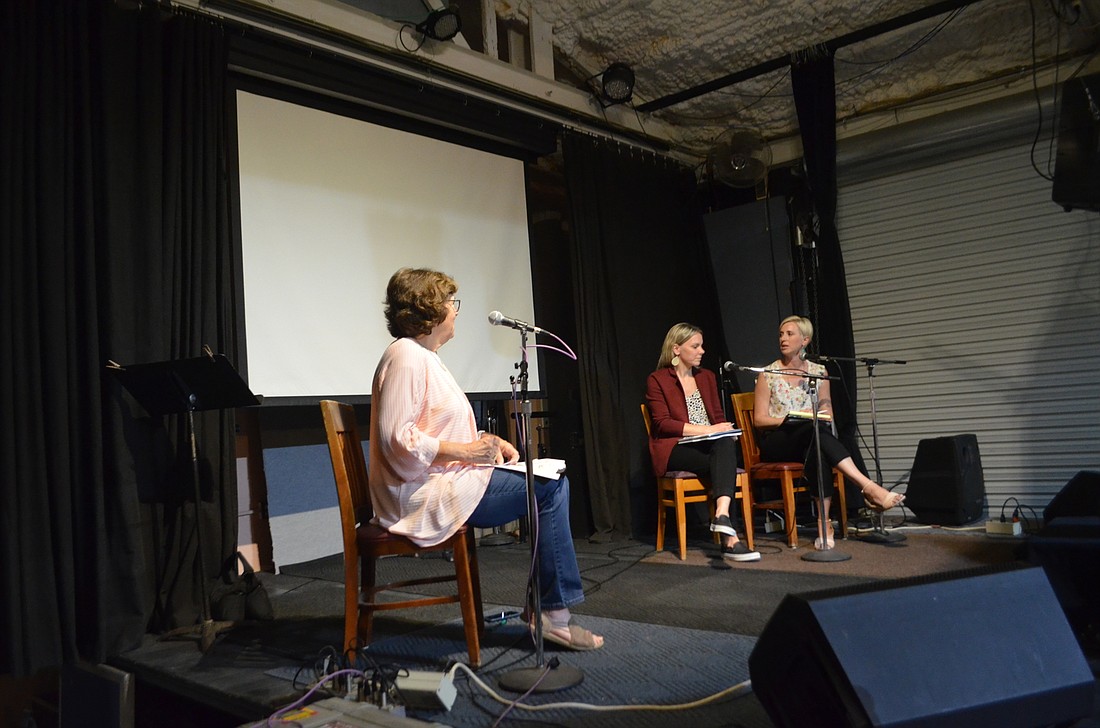- January 23, 2025
-
-
Loading

Loading

During a Nov. 14 Rosemary District Association meeting, resident and Q&A moderator Sue Stewart asked a question to city transportation planning staff: What, exactly, is a “complete street”?
The city has identified Boulevard of the Arts, Ringling Boulevard and Siesta Drive as potential complete streets, a designation included in the multimodal connections plan the City Commission adopted at its Oct. 21 meeting. Chief Transportation Planner Colleen McGue explained that a complete street is one designed to serve all users — drivers, cyclists, pedestrians and transit riders.
McGue said the layout of a complete street is variable depending on the area in which it’s located. She told the audience at the Rosemary District meeting they would be involved in the planning process if the city pursued a project on Boulevard of the Arts.
Complete streets are just one way the city continues to emphasize multimodal transportation, plotting ways to make it easier for people to move around the city on foot or on bike. Although the city first drafted a multimodal connections plan in 2015, the document — which outlines potential projects, such as bike lanes and multiuse paths — wasn’t adopted until last month.
That was a direct response to public input the city gathered during the Sarasota in Motion transportation planning process, which showed an interest in a less car-reliant transit system. By adopting the multimodal connections plan, the city has a better shot at obtaining funding from the Sarasota/Manatee Metropolitan Planning Organization.
Although MPO’s funding process considers projects in the final year of a five-year work program, McGue said residents won’t necessarily have to wait that long to see some of the multimodal projects implemented. McGue said that if higher-priority MPO projects don’t come to fruition or are built under budget, unallocated dollars might be up for grabs.
“Smaller bike and pedestrian projects like these, if they’re shovel ready and in an approved plan, are competitive for those kinds of funds,” McGue said.
The city will also fund some work through its own capital improvements plan, and officials can work with the state during FDOT road improvement projects within city limits if there’s a project identified on that street. McGue said the city could move quickly to undertake projects that already have a funding source, such as the painting of shared lane markings on some roads.
During the Oct. 21 City Commission meeting, commissioners emphasized the importance of making connections to two forthcoming high-profile projects: The Bay Sarasota and the Legacy Trail extension at Payne Park. McGue said city staff would continue to update the plan to incorporate input gathered throughout the Sarasota in Motion process, which is scheduled to continue through next year.